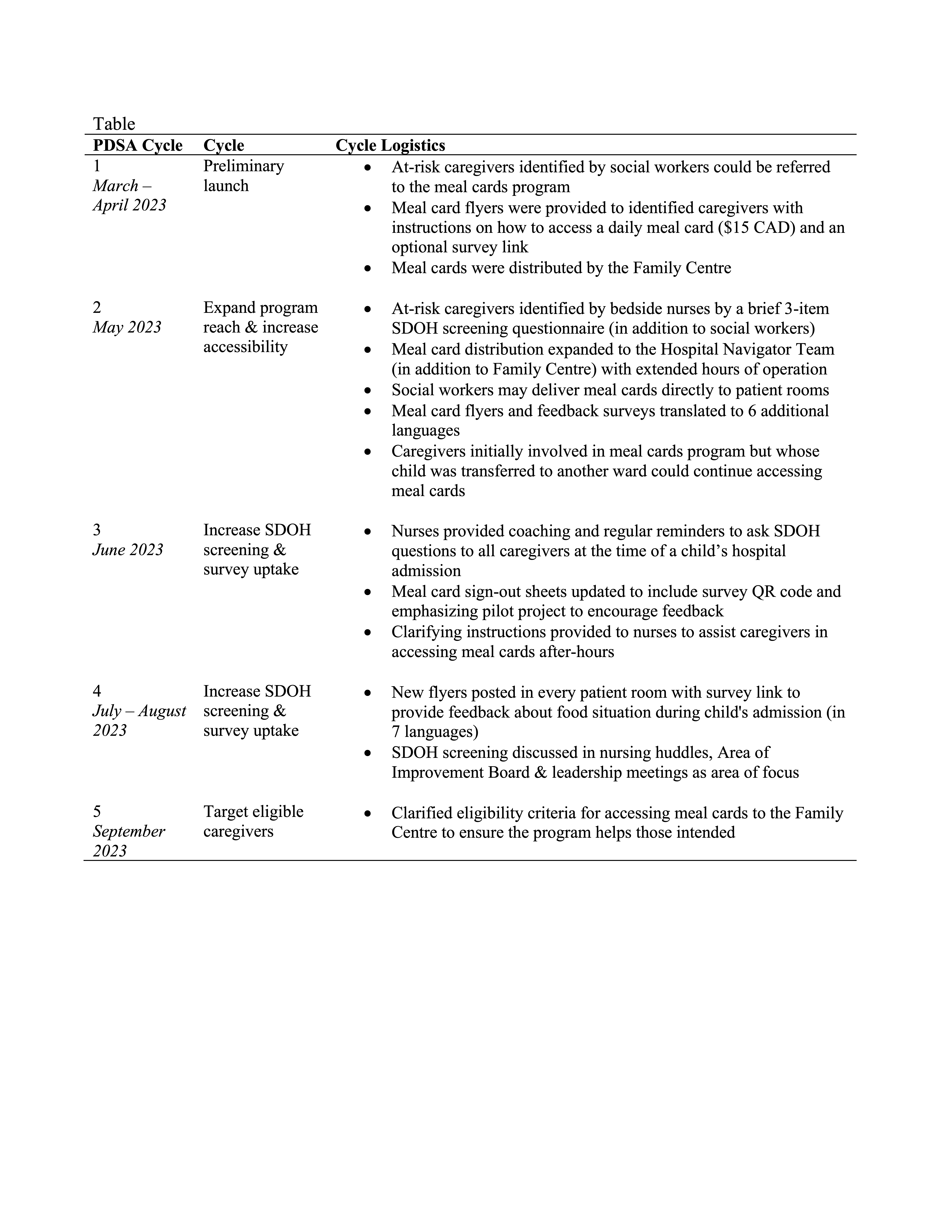Health Equity/Social Determinants of Health
Session: Health Equity/Social Determinants of Health 8
316 - Hospital-based food insecurity in a Canadian academic pediatric hospital: a meal card quality improvement pilot project
Sunday, May 5, 2024
3:30 PM - 6:00 PM ET
Poster Number: 316
Publication Number: 316.1823
Publication Number: 316.1823

Courtney Hardy, MD (she/her/hers)
Resident
The Hospital for Sick Children
Toronto, Ontario, Canada
Presenting Author(s)
Background: Hospital-based food insecurity (HBFI) is the inability of caregivers to obtain adequate food for themselves during their child’s hospital admission (Figure). Prior analyses at our academic pediatric hospital showed HBFI prevalence of 38%.
Objective: Our pilot project provided at-risk caregivers with meal cards during their child’s hospital stay. Quality improvement (QI) goals were to (1) improve rates of nurse-led screening for social determinants of health (SDOH) (2) reduce prevalence of HBFI and (3) evaluate caregivers’ access to and satisfaction with the pilot program.
Design/Methods: Caregivers of children admitted to the general pediatric ward of an academic pediatric hospital were identified with a social need by a social worker or by a nurse-led 3-item SDOH screening tool. A meal card flyer was provided to identified caregivers with instructions on how to access a daily meal card ($15 CAD) and a survey link. Interdisciplinary meetings with key stakeholders were held to conduct plan-do-study-act (PDSA) cycles on a monthly or bimonthly basis (Table). Caregivers of all admitted patients were invited to complete an optional survey that assessed HBFI and, for those who participated, to evaluate the pilot program including potential access barriers and overall satisfaction.
Results: From March to September 2023, 1,449 children were admitted to general pediatric wards. A total of 2,800 meal cards were distributed (~ 31 caregivers per week). The proportion of caregivers screened for SDOH by nurses increased from 7.2% in April to 15.5% in September. Of 163 caregivers who completed the survey, 131 (80.4%) self-identified as experiencing HBFI, of whom 80 (61.1%) had received a meal card. Awareness and access to the meal cards improved over the study period. Of those surveyed, 84.2% felt comfortable accessing the meal cards and 86.8% were satisfied or very satisfied with the program. 68.9% felt the monetary value of the meal cards was sufficient for one caregiver in reducing HBFI. Barriers in accessing meal cards included difficulties leaving the child’s room (14.7%) and lack of awareness of the program (25.2%).
Conclusion(s): Most eligible caregivers found the meal card program easily accessible, highly satisfactory, and helpful in reducing HBFI. Identification of caregivers with SDOH screening by nurses improved with time but remained low. This lack of identification may be contributing to the high prevalence of HBFI. The QI PDSA systematic approach improved awareness and access to the program. Future PDSA cycles will evaluate the effect of subsequent interventions in identification and reduction of HBFI.
.png)

